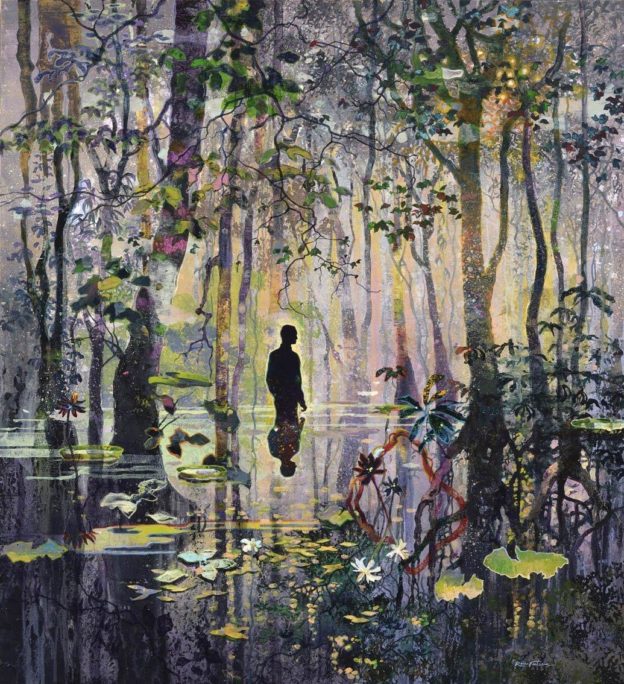Greetings, I’m Christopher Peace, a Ph.D. student at the University of Kansas. I’m very new to HASTAC Scholars, and somewhat to digital humanities at large. I’m currently finishing course work in the rhetoric and composition department, and I’m interested in African American folklore and the rhetoric of space and place. To me, investigating how places and spaces are rhetorical speaks directly to the social composition of culture and to the embeddedness of place and identity. As for folklore, I’m interested in the activities that seek to preserve folk culture, especially through “material” practices such as cultural festivals and folk magic/religions. For my master’s thesis, I studied the ethnographic novels of famous Black anthropologist Zora Neale Hurston and her methods of crossing cultural boundaries to collect and preserve cultural memes. So, when I was presented the opportunity to intern for the 30th Annual ZORA! Festival of the Arts and Humanities, in Eatonville, Florida, I was beyond thrilled to be in the same place and spaces where Hurston dwelled. As an intern, I compiled the program guide for every activity of the festival, hosted by the Association to Preserve the Eatonville Community (P.E.C.), and I got an amazing opportunity to travel with Alice Walker to the actual grave site of Zora Neale Hurston in Fort Pierce, Florida. With the help of my GPS navigation, I have been on every street in Eatonville, which is the oldest Black municipality in the United States, and many other highways in the surrounding Orlando area. I also got the opportunity to meet and learn from Dr. Julian Chambliss, a member of the steering committee for HASTAC, who also happens to be on the national planner committee for the ZORA! Festival. One of the greatest impressions I have from my experience at the festival is that place matters; its history has a material weight that bears on the land, and people ritualize territories through cultural practices that seek to preserve and expand culture, while at the same time reaffirming their identity. My studies in rhetoric and composition allow me the space to examine certain written and digital genres that the festival and other cultural practices produce, and the historicity of the town of Eatonville helps me understand the sacredness of place within a site of rich folkloric heritage. Over the course of these two years, I plan to use DH resources to create a digital interactive map of the town of Eatonville, and possibly other Black-founded settlements in the United States. P.E.C. has a paper version of a walking tour for Eatonville, and I think digitizing resources would aid the organization in practical ways. I’m also interested in creating blogposts that deal with digital genres in African American folklore and the rhetoric of space and place.
Book Review: Posthuman Blackness and the Black Female Imagination
